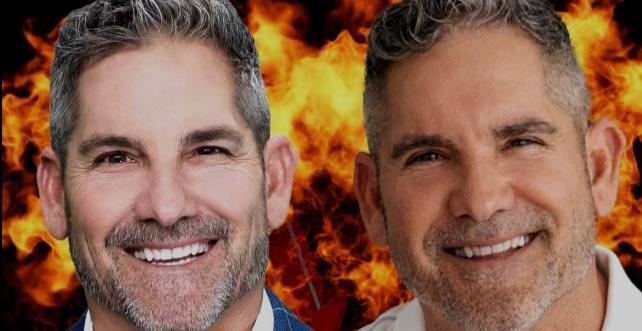Case Developments:
-
Gary Cardone, twin brother of famed entrepreneur Grant Cardone, faces severe RICO allegations involving systematic racketeering and deceptive practices.
-
A fierce discovery dispute unfolds as Microsoft is ordered by federal court to hand over crucial Skype communications involving Gary Cardone.
-
The case echoes earlier accusations against Grant Cardone, posing significant reputational risks to the broader Cardone brand.
By Samuel A. Lopez – USA Herald
[FLORIDA] – The legal storm surrounding Gary Cardone, twin brother of celebrity entrepreneur Grant Cardone, has reached a boiling point. A civil Racketeer Influenced and Corrupt Organizations Act (RICO) lawsuit, Sihler et al. v. Global E-Trading, LLC et al., accuses Gary and his company, Chargebacks911 (also known as Global E-Trading, LLC), of orchestrating a sprawling fraudulent scheme.
Filed on June 28, 2023, in the U.S. District Court for the Middle District of Florida (Case No. 8:23-cv-01450-VMC-JSS), the case has now entered a contentious discovery phase, spotlighting Gary’s alleged misconduct and drawing inevitable comparisons to his brother Grant’s own legal entanglements. With a class action certified on August 13, 2024, and a discovery dispute heating up as of February 10 2025, this case is poised to reshape the narrative around the Cardone brand.
Plaintiffs Janet Sihler and Charlene Bavencoff allege Gary Cardone orchestrated widespread deceptive schemes targeting consumers through fraudulent negative-option subscription marketing. Under federal law, specifically 18 U.S.C. § 1961 et seq., defendants found liable for RICO violations face steep penalties, including treble damages—triple the actual financial harm sustained by victims. With damages potentially surpassing $70 million before tripling, the financial stakes in this case are immense.
The allegations highlight Cardone’s purported use of deceitful tactics, particularly through Chargebacks911, which specializes in disputing consumer chargebacks for online merchants. Plaintiffs argue the company systematically manipulated documentation to appears as if consumers gave consent when they did not, misled financial institutions, and employed deceptive microtransactions to artificially lower merchant chargeback rates, thereby facilitating ongoing consumer harm.
Discovery Clash with Microsoft Over Skype Communications
A pivotal and fiercely contested aspect of the litigation centers on Microsoft’s compliance with a subpoena demanding production of Gary Cardone’s Skype communications. Initiated by plaintiffs on October 24, 2024, the subpoena sparked a legal confrontation with Microsoft resisting disclosure. However, Judge Tana Lin of the federal court denied Microsoft’s motion for reconsideration on January 15, 2025, mandating immediate compliance.
Judge Lin’s directive unequivocally emphasized the necessity of these communications, ordering responsive documents produced within 14 days. In the latest court developments, parties were required to submit a joint status report by February 10, 2025, detailing compliance. This ongoing discovery dispute underscores the gravity of the evidence at stake, which plaintiffs suggest will significantly bolster their claims of systematic fraud and deception.
FTC’s Prior Settlement Sets Troubling Stage
The current RICO allegations emerge against the backdrop of a stringent 2023 settlement between Chargebacks911 and regulatory authorities. The Federal Trade Commission (FTC) and Florida Attorney General previously accused Chargebacks911, Gary Cardone, and co-founder Monica Eaton of violating Section 5(a) of the FTC Act and Florida’s Deceptive and Unfair Trade Practices Act (FDUTPA).
The regulators alleged:
-
Submission of misleading and altered documents to banks to dispute valid consumer chargebacks.
-
Ignoring obvious “red flags” like mismatched branding and inconsistent consumer disclosures.
-
Running millions of deceptive microtransactions from 2013 to 2019 to artificially lower merchant chargeback rates.
The settlement, while not an admission of guilt, slapped Gary Cardone, Monica Eaton, and Chargebacks911 with a permanent injunction barring ties to high-risk clients—like those peddling negative-option subscriptions—and demanded transparency in future dealings. The $150,000 penalty ($100,000 civil fine plus $50,000 in attorney fees) was a slap on the wrist compared to the RICO case’s potential fallout, but it cemented Gary’s reputation as a figure under regulatory fire for bad business practices, but surprisingly the company was not shut down.
Twin Shadows: Grant Cardone’s Parallel Controversies
Gary’s legal quagmire casts a stark shadow over his twin brother, Grant Cardone, the flamboyant real estate titan behind Cardone Capital. While Grant has never faced criminal charges, his career is riddled with civil lawsuits alleging fraud and deception—claims eerily similar to those haunting Gary. In 2020, investor Luis Pino sued Cardone (Pino v. Cardone Capital), alleging inflated return promises (15% annually) and hidden risks in Cardone Equity Funds V and VI. Though dismissed in 2023 after twists and appeals, the case spotlighted Grant’s aggressive sales tactics.
Other lawsuits—like those from 10X Incubator partners in 2023 claiming undelivered services, or unverified 2025 whispers of a $100 million dispute with Gary Brecka—paint a picture of a man perpetually dodging fraud accusations. No court has pinned him with liability, but the parallels with Gary’s alleged misconduct are striking: misrepresentation, exploitation of trust, and a knack for skirting accountability. Together, the Cardone twins embody a brand synonymous with bold promises—and bolder legal risks.
With discovery proceedings heating up, particularly around Microsoft’s production of evidence, the case stands at a critical juncture. The forthcoming communications from Skype could dramatically alter the landscape of litigation, either substantiating plaintiffs’ allegations or potentially weakening their case if exculpatory evidence emerges.
Fact-Check & Sources:






